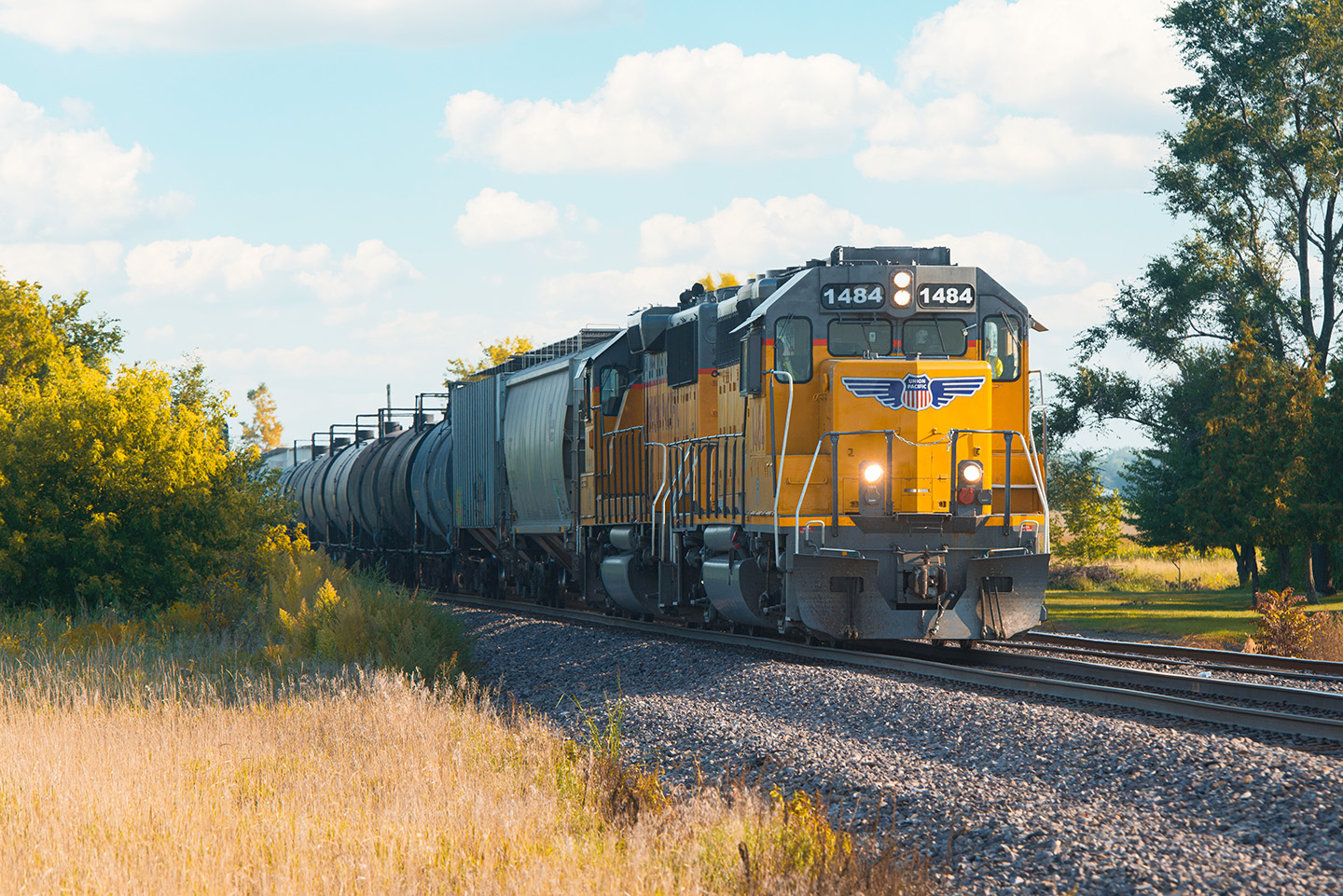
(Photo: Iowa Soybean Association)
Railway agreement reached
September 15, 2022
Unions and management agreed to a tentative deal Thursday morning averting a freight railroad strike that could have impacted a sizable percentage of the nation’s freight, including the shipment of agricultural goods.
Early Thursday, a tentative agreement was reached between the National Carriers’ Conference Committee – representing the nation’s leading railroads – and the unions representing railroad workers – the Brotherhood of Locomotive Engineers and Trainmen Division of the International Brotherhood of Teamsters, the International Association of Sheet Metal, Air, Rail, and Transportation Workers – Transportation Division, and the Brotherhood of Railroad Signalmen.
While subject to ratification by union membership, this agreement will prevent a potential railroad strike. If an agreement between the two sides had not been reached by 12:01 a.m. Friday, a railroad strike, lockout or slowdown was possible. Throughout this past week, railroads had been dialing down and suspending service due to the potential for a network stoppage starting on Friday.
The tentative agreement will provide rail employees at 24% wage increase during the five-year period of the contract (2020-2024) – consistent with the recommendations of the Presidential Emergency Board. An immediate average payout of $11,000 will be provided upon ratification.
Good news for all involved
Mike Steenhoek, executive director of the Soy Transportation Coalition, says the tentative deal is a sigh of relief.
“We are extremely pleased both sides were able to arrive at an agreement,” he says. “Our nation’s railroads are integral to the success of the American farmer. Without cost-effective, reliable rail service, so much of what farmers produce will never connect with our domestic and international customers.”
In a statement, President Joe Biden says the agreement is an important win for the U.S. economy and all Americans.
“It is a win for tens of thousands of rail workers who worked tirelessly through the pandemic to ensure that America’s families and communities got deliveries of what have kept us going during these difficult years,” the president says. “These rail workers will get better pay, improved working conditions, and peace of mind around their health care costs: all hard-earned. The agreement is also a victory for railway companies who will be able to retain and recruit more workers for an industry that will continue to be part of the backbone of the American economy for decades to come.”
For Steenhoek, the agreement is critical for soybean producers.
“American farmers are responding to the challenges of global food insecurity,” he says. “We need our nation’s railroads to be a reliable partner in this effort. A strike, lockout or significant slowdown would have imposed significant harm on agriculture – particularly on the eve of harvest. The tentative agreement allows farmers and U.S. agriculture to proceed with doing what they do best – being the highest quality, most dependable provider of food to the world.”
Back